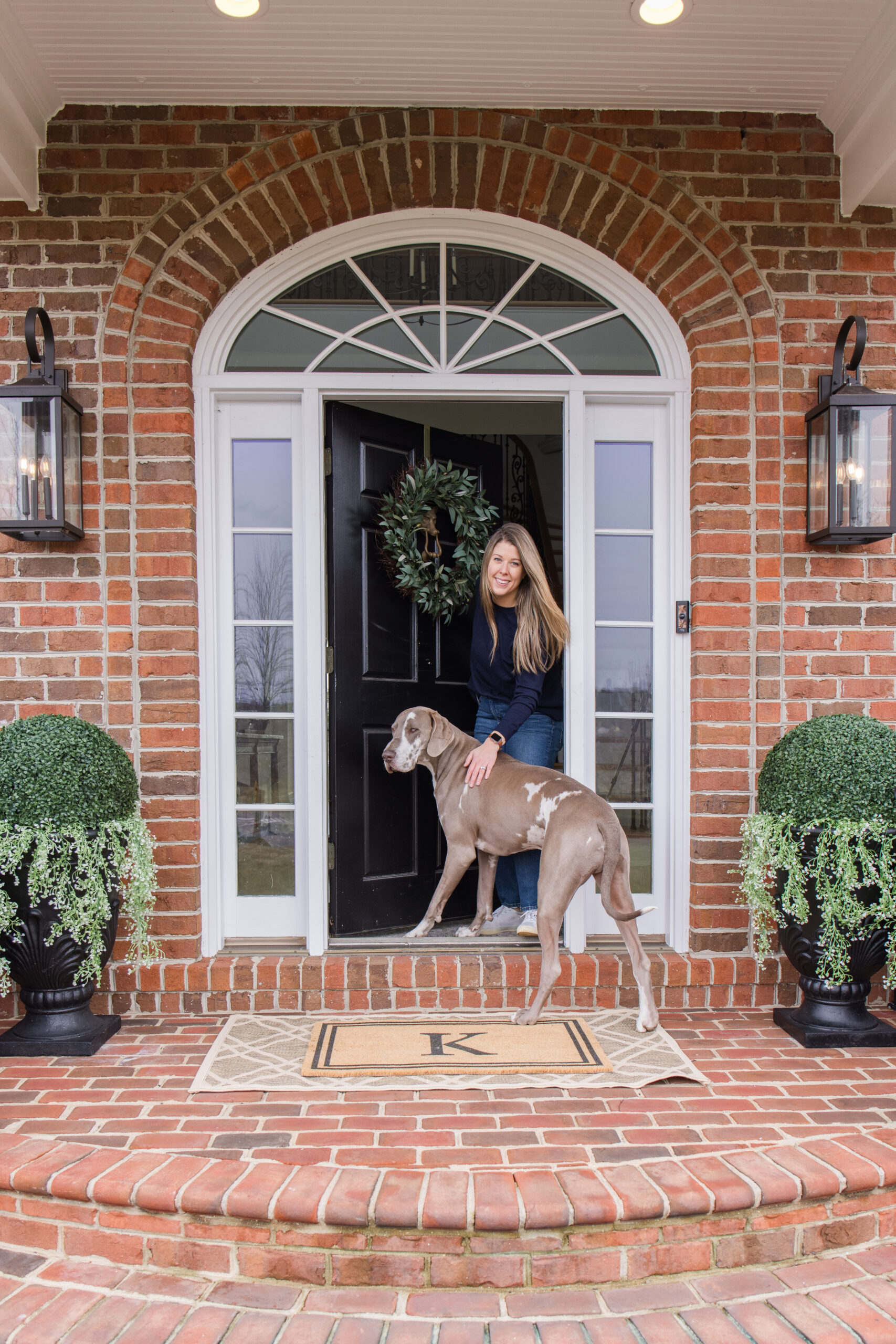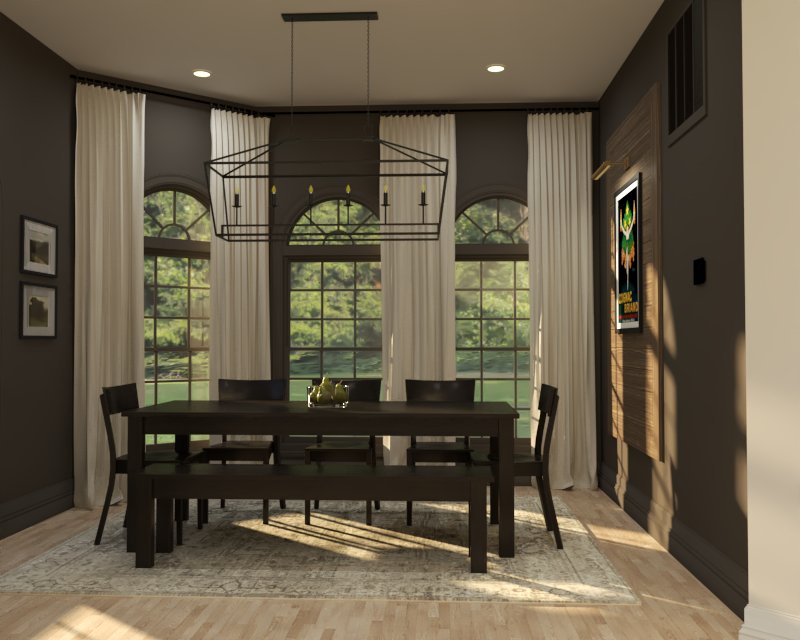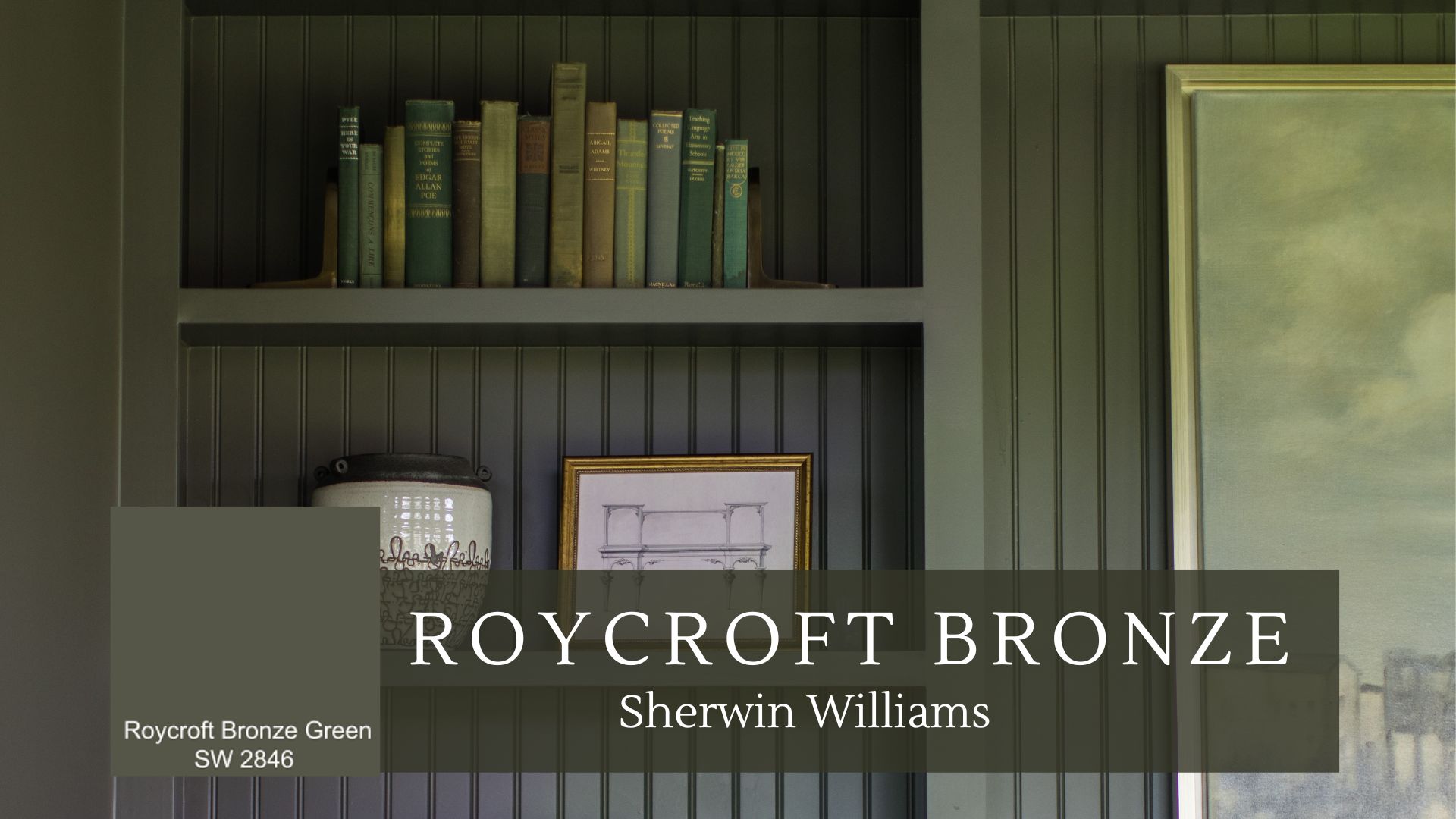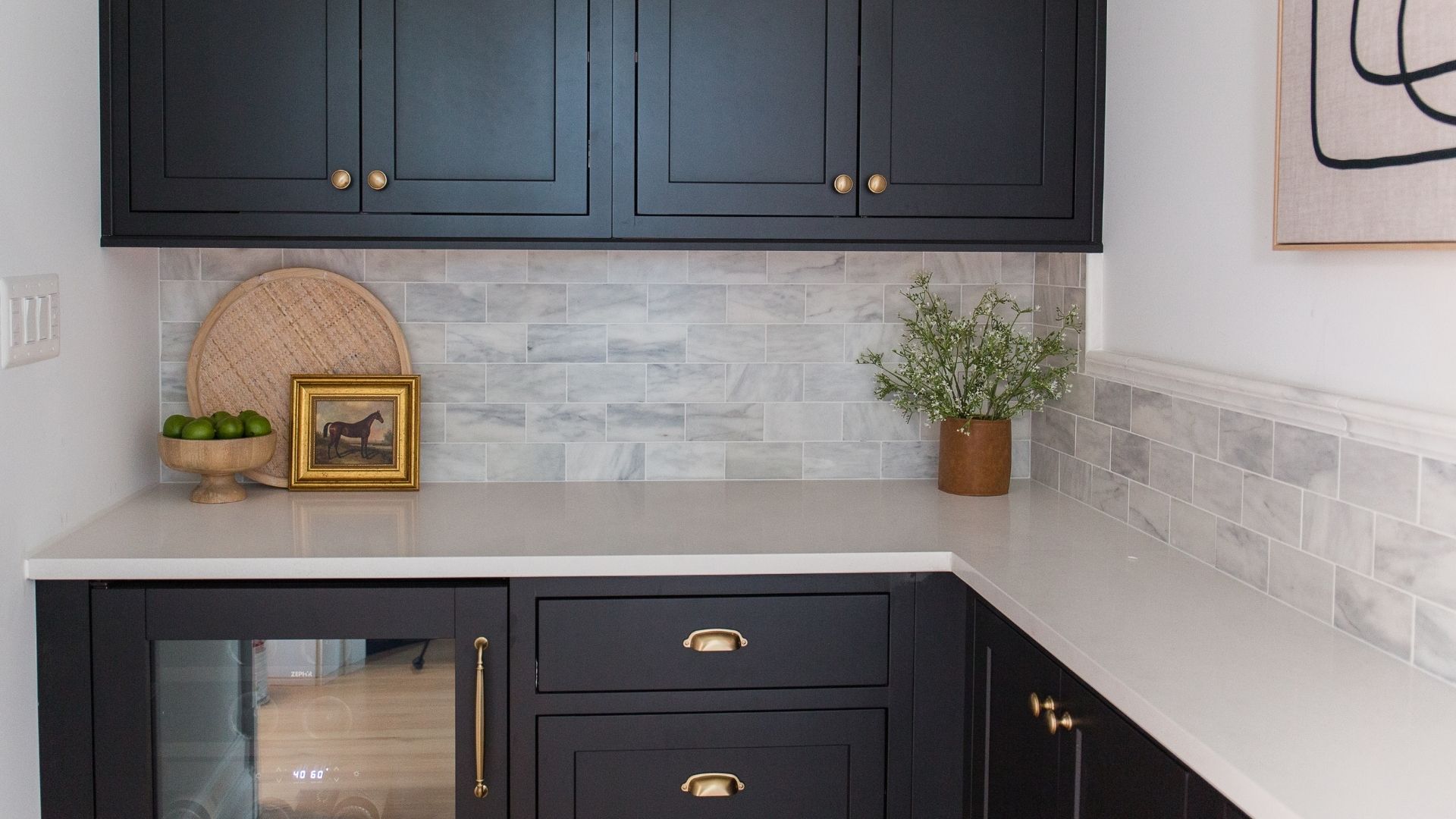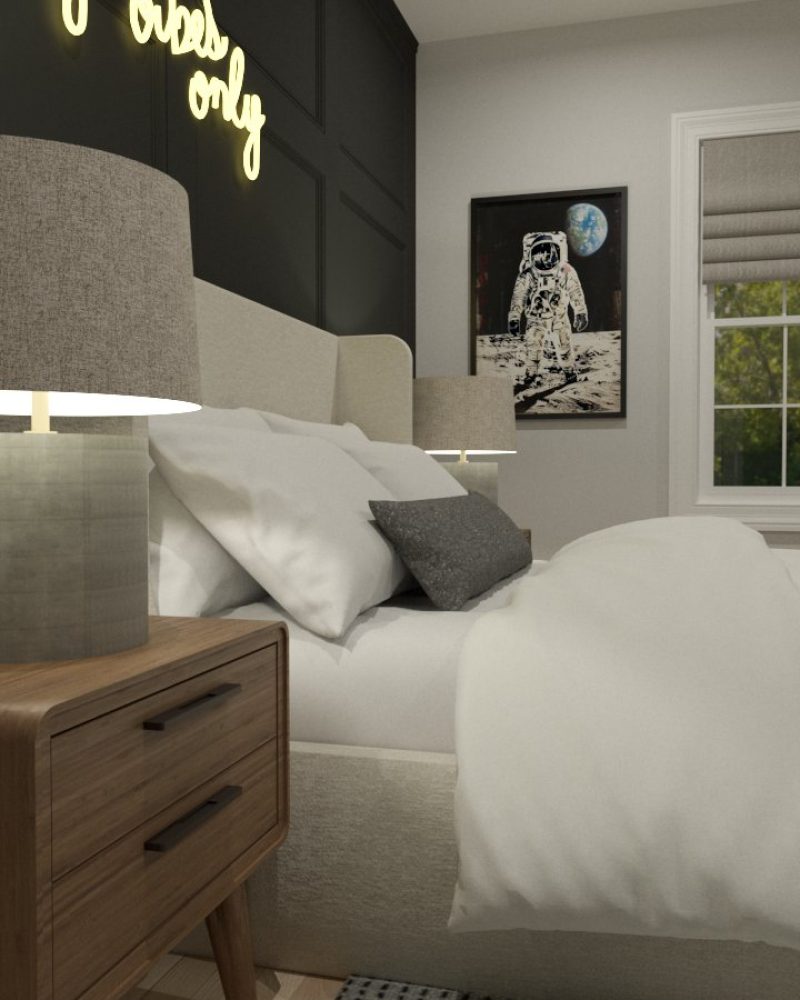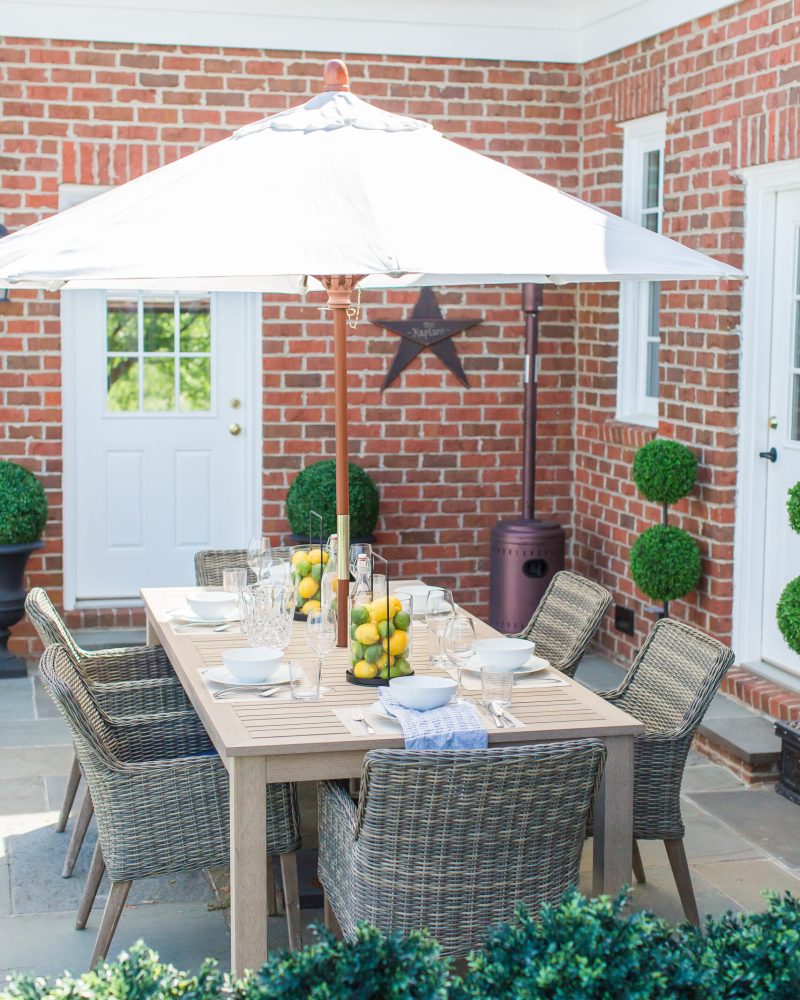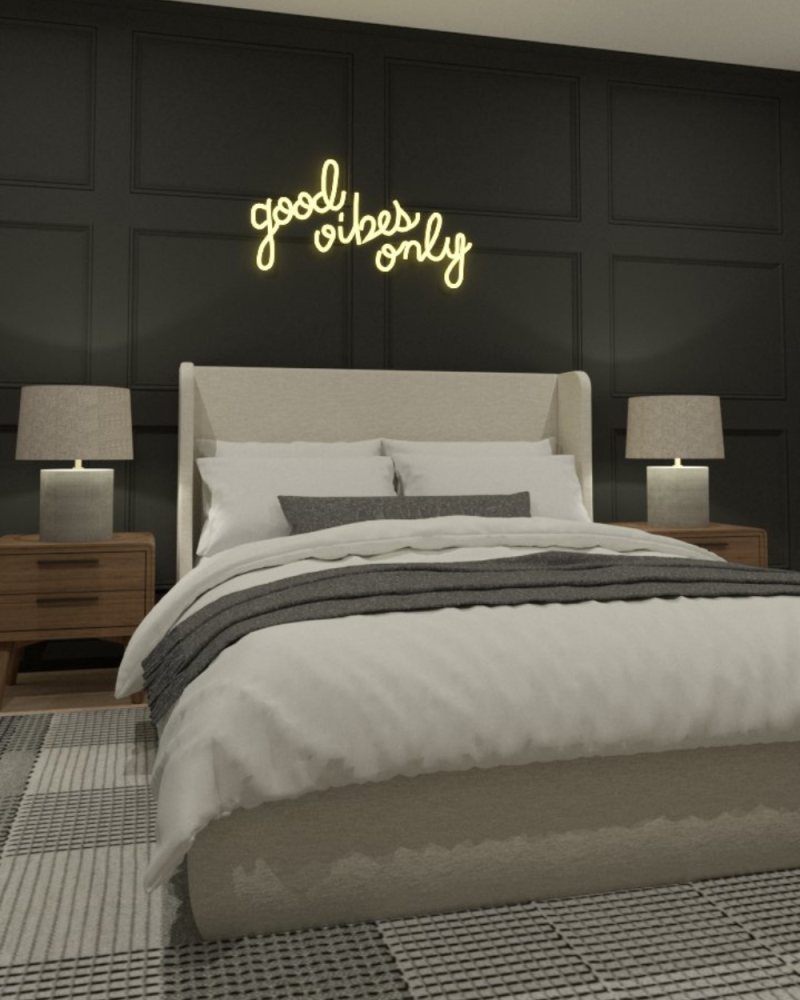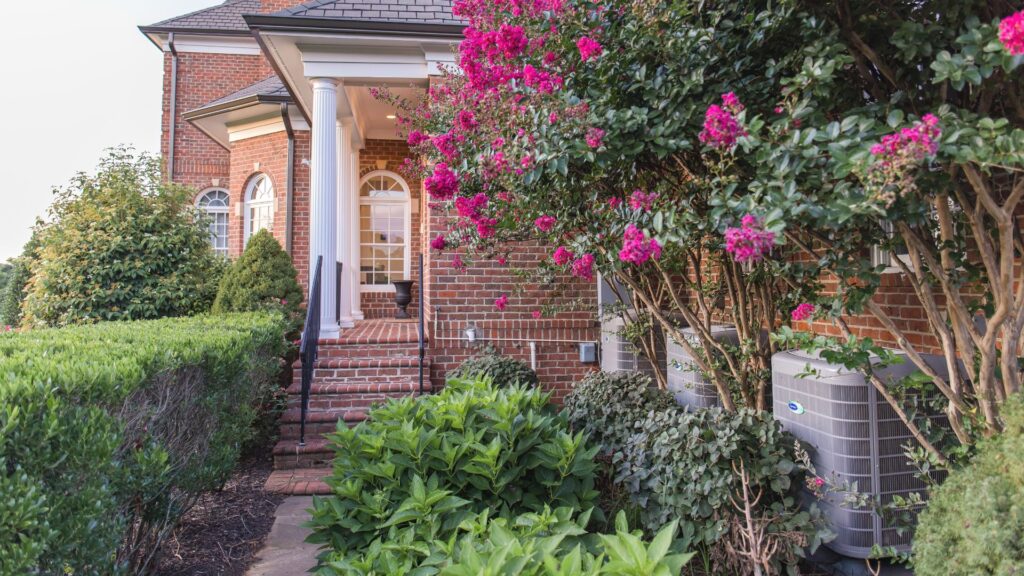
I admit it – up until a few months ago I had no idea what a heat pump was. I had heard the term of course and I knew it was some form of HVAC, but I couldn’t tell you how it compared to an air conditioner or furnace.
I kept hearing from people that they switched to a heat pump and saved so much money on their energy bills. Well, that sounds good I thought. So when our propane furnace and AC units started acting funky in The Arched Manor, I did my homework on heat pumps and was pleasantly surprised by what I learned. Fast forward a few months, and we have replaced all three air conditioner units with heat pumps! But let’s get into the details…
All my life I thought that air conditioning units used refrigerant to cool the air and circulate it into the home through the vents. Well, apparently that’s completely wrong.
Differences between a Heat Pump and Air Conditioner
Visually, heat pumps look pretty identical to air conditioner units. When in cooling mode, there is no difference between air conditioners and heat pumps. The real difference is in heat mode. Heat pumps can be “reversed” so that instead of it extracting heat from the inside air and pumping the cool air into your home, it can extract heat from the outside air and pump that heat into your home!
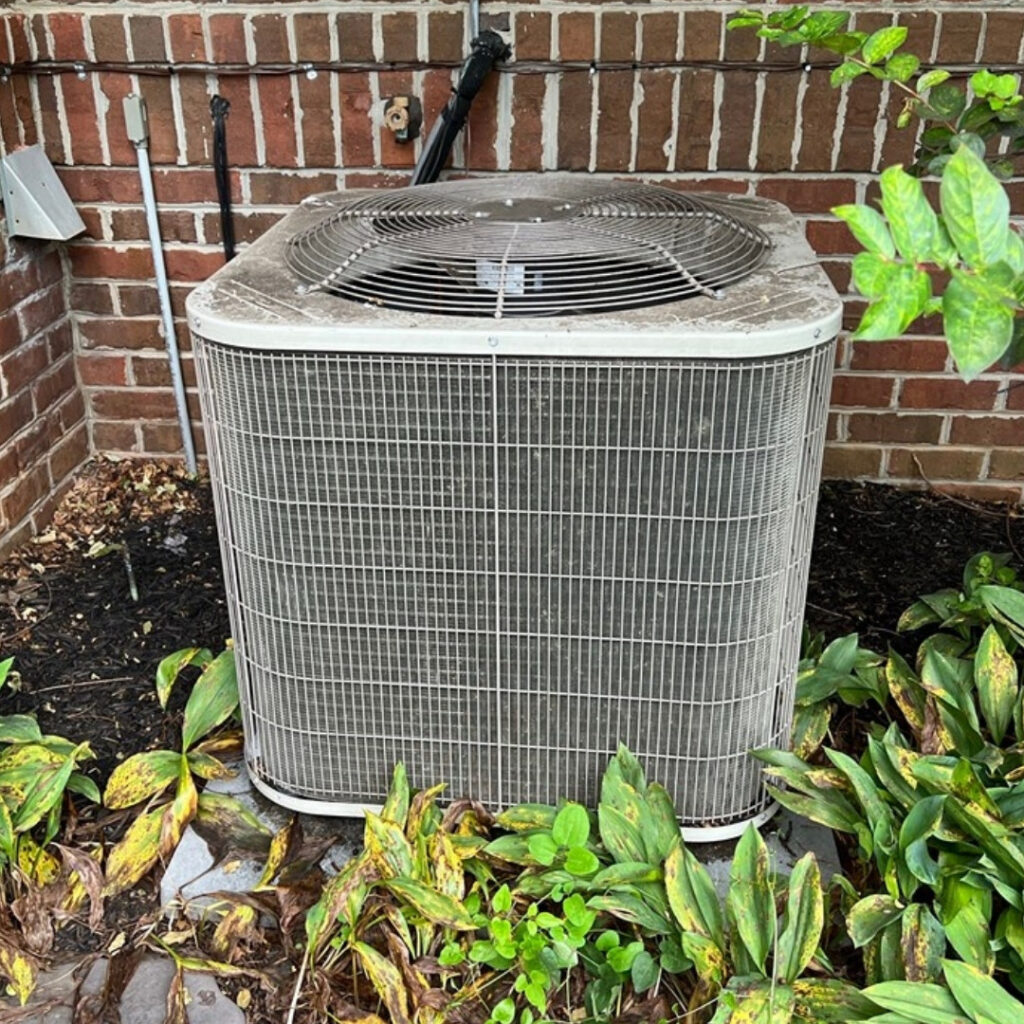
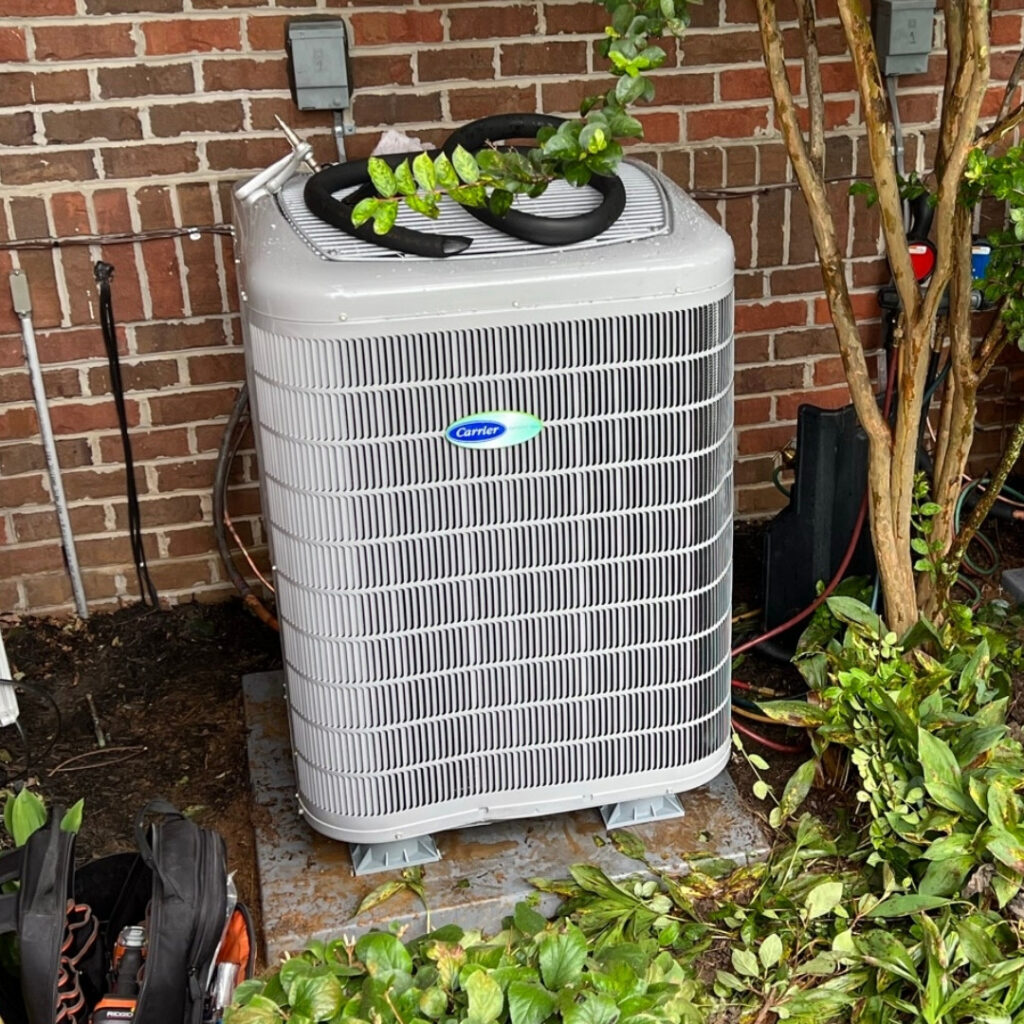
Even in cold temperatures, a heat pump can extract heat from the outside air. However, the efficiency of heat pumps in low temperatures is not great. A secondary heat source is usually best for low temperatures. The addition of a furnace to a heat pump system can be a solution to this problem, creating a system that relies on the heat pump as the primary heat source but automatically switches to the furnace when appropriate. The switchover temperature can be manually set in most smart thermostat systems. This is known as a Hybrid Heating and Cooling System.
Cost to Purchase and Install
The labor cost to install a heat pump system is pretty much the same as that of a traditional air conditioning system. The heat pump unit itself was about 10% more than an air conditioner unit. So the upfront cost is a bit higher, but the long-term gain in efficiency and cost will more than make up for that.
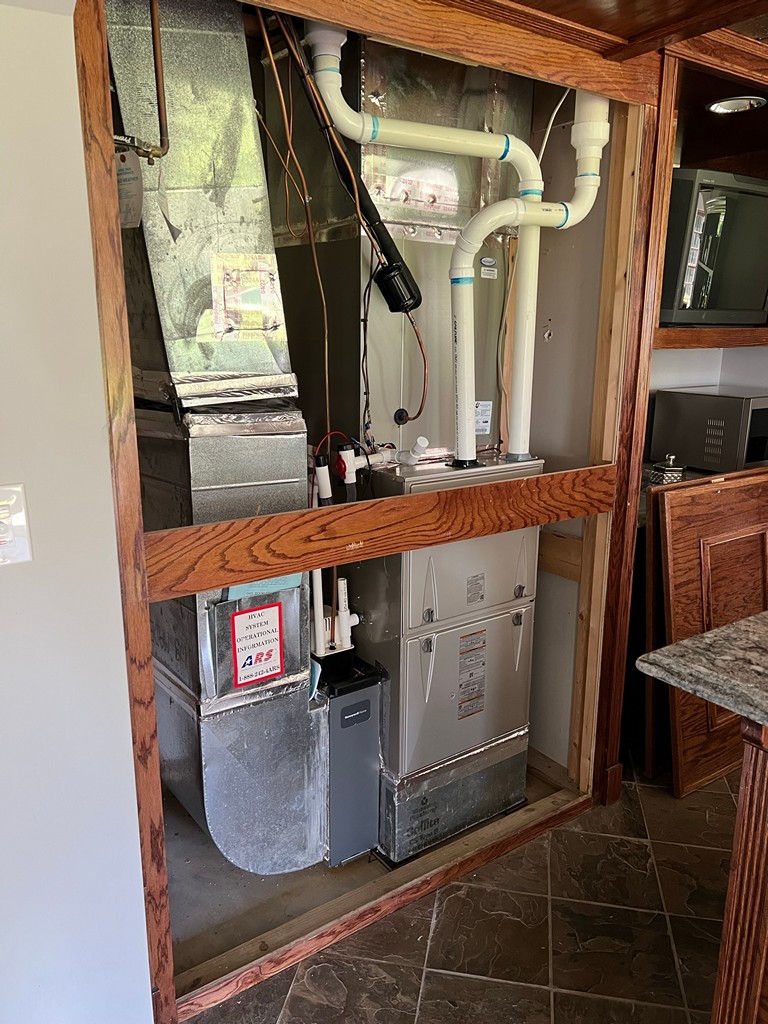
One thing to note though is that depending on your brand and type of heat pump, you may need a four wire thermostat cable going from the indoor HVAC unit to the outdoor heat pump unit. The traditional cable has three wires, but some of the more advanced units with multiple stages require the additional wire. We had to run new cable to our units, which was a bit of a challenge, but worth it to get the efficiency of the staged units. We installed a 7-wire thermostat cable, just to future-proof us as much as possible (the cost was similar to a four wire cable, so why not, right!?).
Energy Efficiency & Cost To Operate
For mild/low temperatures, using electricity to heat your home is more efficient than other traditional sources of heat like natural gas, oil, and propane. Especially in recent years with inflated costs for gas.
For temperatures below freezing, electric heat pumps require too much energy to extract enough heat out of the air. In this case, using alternative fuels is quicker and more efficient.
It should also be noted that the SEER rating and HSPF rating play a factor in the overall efficiency.
SEER ratings (Seasonal Energy Efficiency Ratio) are used to express how efficient a unit is for cooling. The higher the SEER rating, the more efficient it is. Traditional SEER ratings go from 13 to 24. In our opinion, SEER 18 -19 is the best tradeoff between up-front costs for the units vs. long term savings.
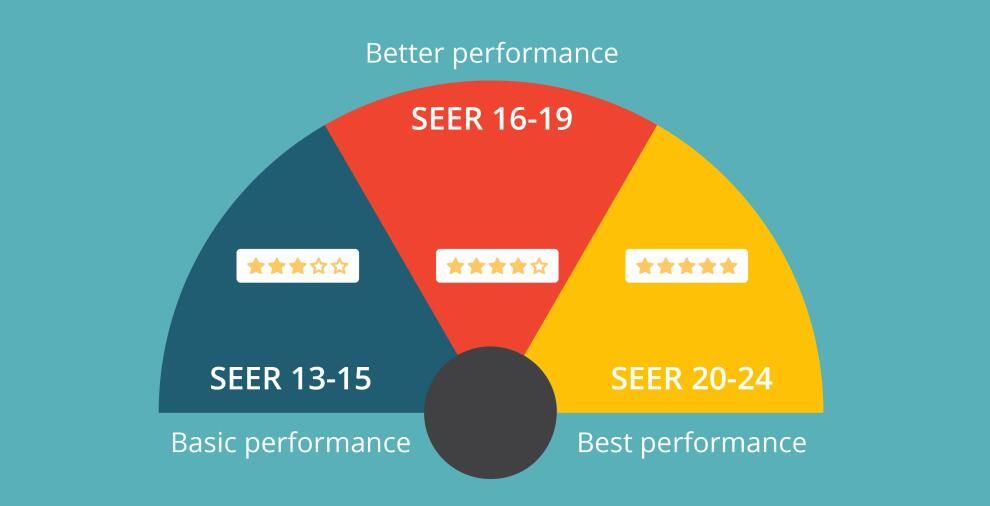
HSPF (Heating Seasonal Performance Factor) is a heating efficiency rating for heat pumps. HSPF is defined as the ratio of heat output (measured in BTUs) over the heating season to electricity used (measured in watt-hours). It therefore has units of BTU/watt-hr. A HSPF rating of 8 or more is considered to be efficient.
Since we are talking about efficiency in this section, we should mention that the higher SEER units typically have two to five stages of heating/cooling. What does this mean? Well, in our last unit (and what is most common) we had one stage, and when it turned on it sounded like a nuclear turbine starting. The lights would dim, the noise would be startling, and then it slowly became white noise that your brain learned to ignore.
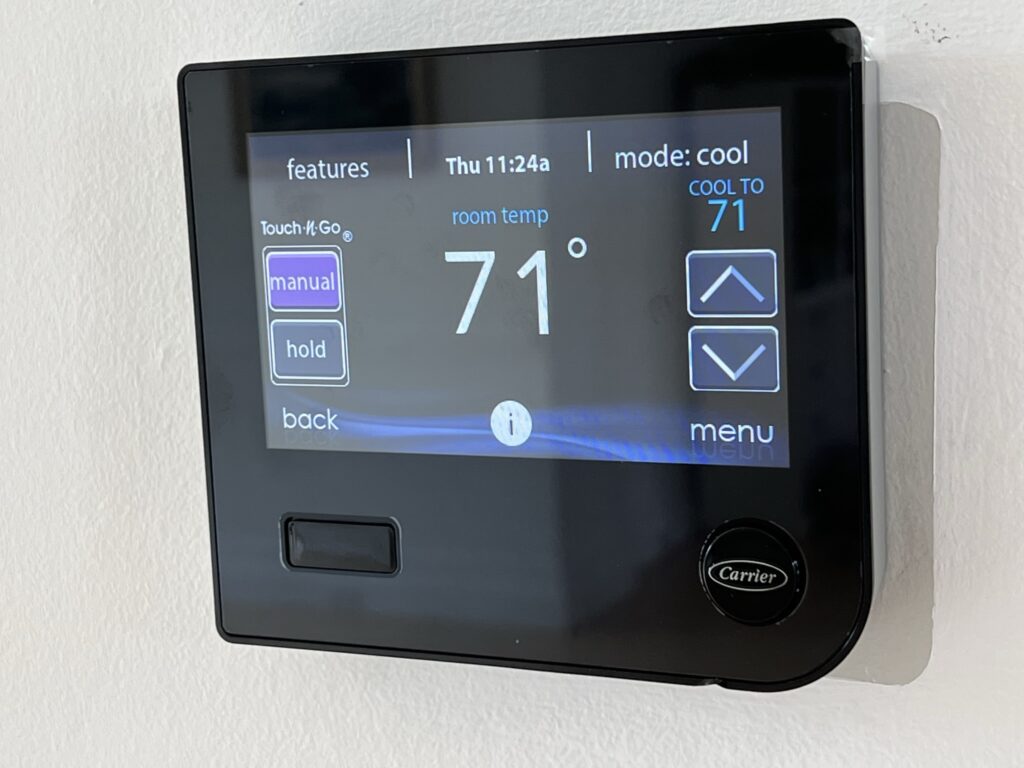
With multi-staged units, they can operate at a reduced power level when necessary to maintain a constant temperature. When there is a drastic change in the temperature, it can crank to a higher stage for more power. Having a staged system is much more efficient than the one stage, all or nothing cycle.
One thing that is noticeable with our new 5-staged system is that you rarely hear the air conditioning or heat in the house. It just seems to be quiet all the time, which is AMAZING!
Longevity
This is one factor that most people ignore. Heat pumps do NOT last as long as traditional air conditioner units. The reason is that heat pumps are used year-round whereas air conditioners are used only in summer. It’s like getting two brand new cars and driving one half the year and the other all year. The higher mileage car will start to have more problems sooner and won’t last as long as the other car.
To circumvent this issue, make sure to get your heat pump units serviced twice a year to make sure they are running normally and are not overly stressed. Also, make sure to replace your filters regularly. A clogged filter will stress your system, which leads to a greater risk of something failing.
What Brand and Units we Purchased
We went with the Carrier Platinum series units paired with the Infinity Touch Wifi thermostat. We went with a hybrid heat system, which combines these two systems:
- Carrier 18 SEER Infinity Variable Speed Heat Pump
- Carrier 96% Gas Furnace - Infinity 2-Stage Variable Speed
So why did we go with Carrier and not Trane, Lenox, or another major brand? The answer really came down to our HVAC installer. We had three companies come out and give quotes, which I highly recommend anyone do. A few of our neighbors recommended Climatic, and the sales rep Patrick came out and was a real straight-shooter – someone that seemed trustworthy and not too “sales-y”.
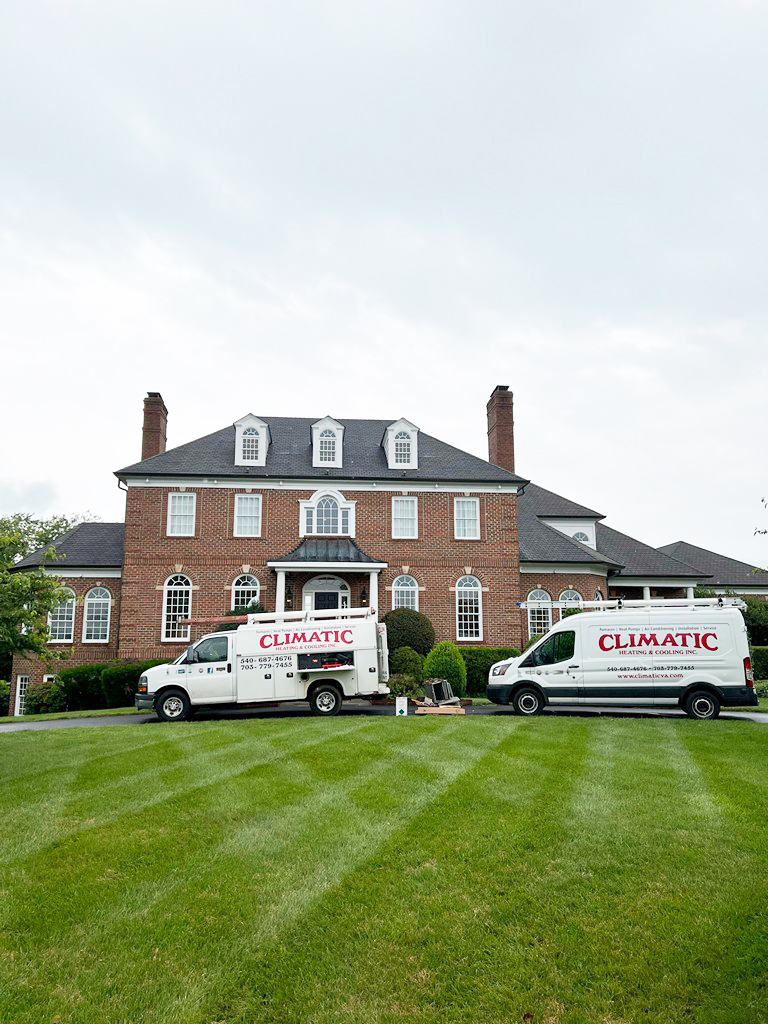
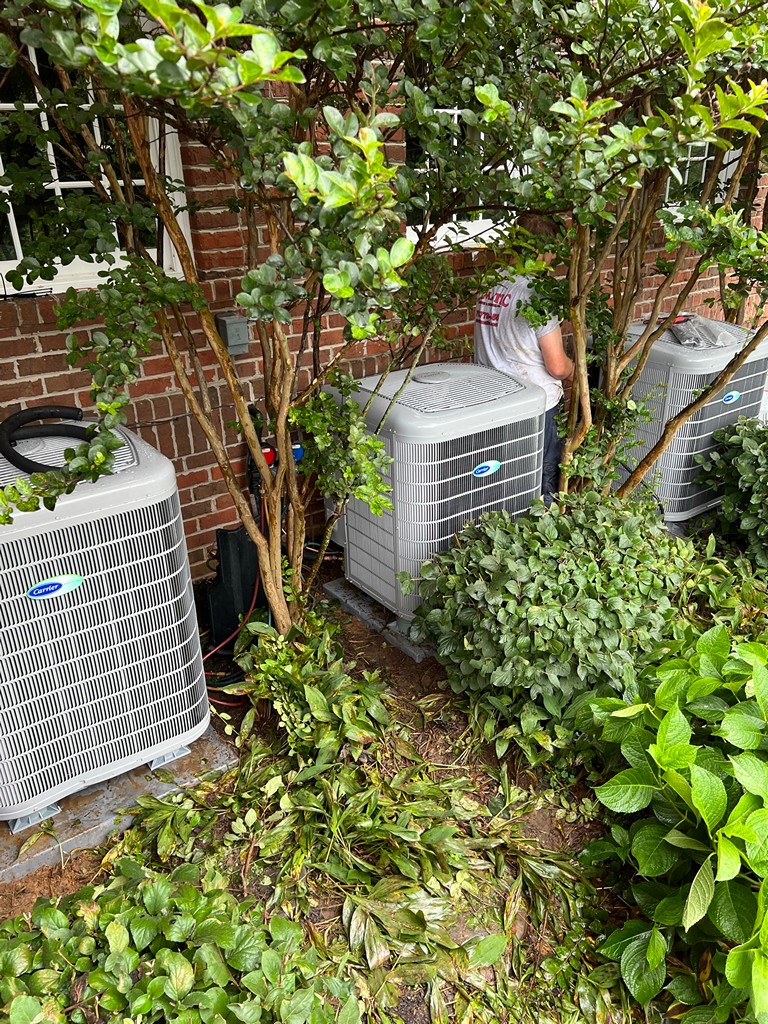
Side note, one of the other companies came out and wanted to sit down with me first thing to discuss my heating and cooling needs. Really? Red flag. My needs are this – I need my house heated and cooled. Give me a quote. 🙂 Also, their price was double what Climatic’s was. So that was an easy “no”.
Back to why we went with Carrier…Patrick said that for our type of house, the tonnage required – he said he would only recommend a Carrier Platinum unit, and I don’t feel like he was trying to upsell us. I’m glad we trusted him, because these units are AWESOME.
Humidity - Humidifier and Dehumidifier
Based on where your house is located, humidity may be an issue for your home’s air quality. For us, we are in Virginia and the summers are very humid and the winters are not. We notice every winter how the wood floors and wood rim contract because of the lack of humidity in the air. It’s not a big deal for us (personal preference), but we could have installed a humidifier in one or both of our basement units. This of course adds cost, which we wanted to avoid. Also, you need a water supply to these units, which we had for one unit but not the other. These water sources also needed filters, since we are on well water, and that’s just one more thing to worry about (replacing filters). So we opted out of the humidifier.
However, the heat pumps also have a dehumidifying mode, which is extremely helpful in the summer when the heat pump is in cooling mode. Removing the moisture in the air makes it feel even cooler than it is, which is great in the hot summer months!
One thing we also like about the Carrier equipment is the 10-year warranty that comes standard.
Conclusion
If you are considering replacing your heating and air conditioning units, strongly consider a heat pump and a hybrid-heating system! The efficiency of these units will reduce your annual energy spend and for us, reduce our propane use (the prices are downright painful every year). It will be fun to monitor the monthly savings over the next 12 months!
FAQ's
There are not many downsides to a heat pump - the only two worth mentioning is that heat pumps cost about 10% more to install than a traditional air conditioning unit and that their lifespan is reduced (when compared to an AC unit) since it operates more hours per year (heats and cools).
In general, it costs about 10% more to install a heat pump than a traditional air conditioner unit. Prices for equipment and labor vary by area, so check with your local HVAC companies to find rates and pricing options.
In general, yes. Using a heat pump can be a very efficient way to heat and cool your home. In some cases, using a heat pump combined with another heat source (propane, natural gas) can save you thousands of dollars a year over a traditional furnace/AC system.
Yes, both the inside and outside units of a heat pump make noise, but it is usually much quieter than a traditional air conditioning unit. The multi-stage units (2-5 stages) are even quitter since they can operate at a lower speed. Since we replaced our air conditioning with a 5-stage heat pump, I have never heard it turn on or off - it's super quiet!
Think of heat pumps as "heat transfer machines". Heat pumps extract the heat from air - whether it's from inside your home (when in cooling mode) or from outside your home (when in heating mode).
Heat pumps are pretty efficient with electricity, especially the higher SEER units (19-24). Most mid-higher range heat pumps also use multi-stage fans so that they can run at a lower speed to maintain temperature, which reduces energy usage. Heat pumps become less-efficient in freezing temperatures, which is why external heat sources (such as a propane or natural gas furnace) are often paired with a heat pump (known as a Hybrid Heating System).
Heat pumps last about 12-15 years, depending on your climate. Since they are used all year, they don't last as long as air conditioning units, which only run in the summer (they get a nice break from the wear and tear during the winter).



